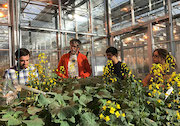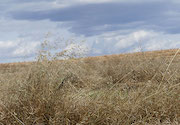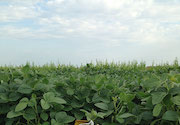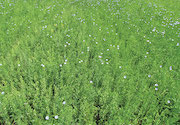| |
| |
 |
 |
| |
 |
|
@{mv_date_MMM d, yyyy}@ |
|
| |
 Through partnerships with Saskatchewan post-secondary institutions, the accelerator can collaborate directly with researchers and educators and work to fill both knowledge and labour gaps in the sector.
» Read more...
Through partnerships with Saskatchewan post-secondary institutions, the accelerator can collaborate directly with researchers and educators and work to fill both knowledge and labour gaps in the sector.
» Read more...
BASF’s Community Challenge called on InVigor hybrid canola growers to nominate a local organization or initiative for the chance to receive one of eight $5,000 donations or the $25,000 grand prize award.
» Read more...
The Top Crop Summit returns virtually on Feb. 16 and 23, 2022. To celebrate the month of December, we’re giving away 40 free passes that will give you access to both the East- and West-centric presentations.
» Read more...
|
| |
 |
 |
| |
|
| |
 Honey bees and other pollinators are important for many agricultural crops. However, their effects and contributions can be challenging to determine. Canola is one of the crops that benefits from pollination, and a collaborative team of researchers in Alberta are working to better understand insect pollination benefits and their contributions to yield, quality and other crop responses.
» Learn more...
Honey bees and other pollinators are important for many agricultural crops. However, their effects and contributions can be challenging to determine. Canola is one of the crops that benefits from pollination, and a collaborative team of researchers in Alberta are working to better understand insect pollination benefits and their contributions to yield, quality and other crop responses.
» Learn more... |
| |
 Western Canadian wild oats are resistant to herbicide groups 1, 2, 8, 14, and 15. In some crops, there are few – if any – choices for controlling a wild oat that has multiple resistance to those herbicide groups, especially Groups 1+2 biotypes. Charles Geddes, a weed scientist with AAFC-Lethbridge, says herbicide resistance in wild oat is arguably the worst weed problem that Prairie growers face.
» Learn more...
Western Canadian wild oats are resistant to herbicide groups 1, 2, 8, 14, and 15. In some crops, there are few – if any – choices for controlling a wild oat that has multiple resistance to those herbicide groups, especially Groups 1+2 biotypes. Charles Geddes, a weed scientist with AAFC-Lethbridge, says herbicide resistance in wild oat is arguably the worst weed problem that Prairie growers face.
» Learn more... |
| |
|
| |
 A study out of University of Manitoba’s department of soil science suggests that nitrous oxide (N2O) greenhouse gas emissions increase in organic systems following wet fall conditions – and can even exceed those of conventional cropping systems treated with urea. Many studies have been conducted in the United States and Europe, but none in the Prairies’ colder cropping environment.
» Read more...
A study out of University of Manitoba’s department of soil science suggests that nitrous oxide (N2O) greenhouse gas emissions increase in organic systems following wet fall conditions – and can even exceed those of conventional cropping systems treated with urea. Many studies have been conducted in the United States and Europe, but none in the Prairies’ colder cropping environment.
» Read more... |
|
 Different agronomic practices, such as crop rotation and tillage intensity, can affect the economics of organic crop production systems. AAFC’s Myriam Fernandez was part of the team that conducted a six-year field study to determine if organic wheat production using diversified rotations and reduced tillage could optimize production, while minimizing environmental impact.
» Read more...
Different agronomic practices, such as crop rotation and tillage intensity, can affect the economics of organic crop production systems. AAFC’s Myriam Fernandez was part of the team that conducted a six-year field study to determine if organic wheat production using diversified rotations and reduced tillage could optimize production, while minimizing environmental impact.
» Read more... |
| |
|
| |
|
|
| |
| |









